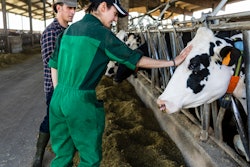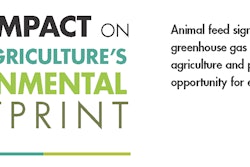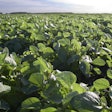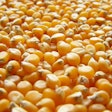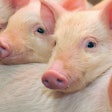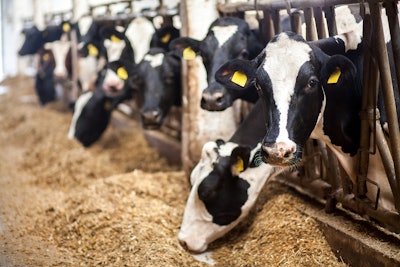
The United Kingdom’s (U.K.) Department for Environment, Food and Rural Affairs (Defra) says it is committed to working with the agriculture industry to reduce methane emissions in livestock through the use of methane-reducing feed additives in England.
After a call for evidence to better understand the opportunities and challenges associated with methane-reducing products, Defra has confirmed it will work closely with industry and farmers to encourage their widespread adoption in England. The move delivers on the commitment in the Environmental Improvement Plan to explore innovative ways to reduce agricultural emissions.
Methane-reducing feed additives, such as methanogenesis inhibitors, seaweeds, essential oils, organic acids, probiotics and antimicrobials, are expected to enter the U.K. market in 2025. After putting out a call for evidence on the potential role of these products, Defra has laid out plans which could include guidance, advice and support through schemes such as the Farming Innovation Programme, Animal Health and Welfare Pathway, Environmental Land Management schemes, or the introduction of a tailor-made program.
A summary of responses has been developed jointly with the devolved administrations and builds on wider U.K. action to reduce greenhouse gas emissions – including through the Net Zero Growth Plan. Defra said its ultimate objective is to establish a mature market, encourage uptake and mandate the use of these products in appropriate cattle systems across England, as soon as feasibly possible and no later than 2030.
“We are fully committed to achieving net-zero greenhouse gas emissions in the U.K. by 2050 and it is vital that we continue to explore ways to assist farmers in sustainable food production while also further reducing emissions from agriculture,” said Farming Minister Mark Spencer. “We will continue to work closely with industry to develop a mature market and mandate the use of safe and effective methane-suppressing feed products in suitable cattle systems in England as soon as feasible.”
These plans align with the government’s response to the 2023 Climate Change Committee Progress Report, which recommended the mandatory addition of methane-inhibiting additives to feed products for U.K. beef and dairy systems.
Last week, the government of Ireland said it supports new scientific advancements in feed additives to reduce livestock methane. Feed additives were tested in indoor beef systems but have the potential for use in pasture-based systems. Research also demonstrated significant potential for slurry additives to inhibit and reduce emissions from manure storage.



